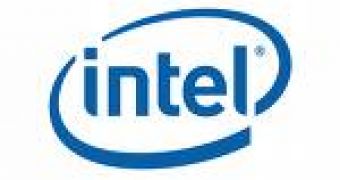Intel released to the media its earnings for the second quarter of 2008. Although the final results are a little bit under the expectations, the company had amazing revenues, especially on the year-over-year basis. The chip manufacturer posted $9.47 billion in revenue, up from $8.68 billion registered during the same period in 2007. Also, its share earnings rose from 22 cents last year to 28 cents in Q2 2008.
"Intel had another strong quarter with revenue at the high end of expectations and earnings up substantially year over year," said Paul Otellini, Intel president and CEO. "As we enter the second half, demand remains strong for our microprocessor and chipset products in all segments and all parts of the globe."
Intel's forecasts placed the earnings for the third quarter somewhere between $10 billion to $10.6 billion in sales. Also, the gross margins foreseen are at around 58 percent. The second quarter brought gross profit margins at 55.4 percent, which is up from the 53.8 percent registered during the preceding quarter. The smaller-than-expected revenues may be caused by the competition between Intel and Advanced Micro Devices in the lower-priced notebook PC market.
Intel still has all the reasons to cheer. Its earnings grew nicely on the general move towards mobile computing. Both the mobile microprocessors and chipset units scored records on sales. While some regress was registered on the total revenue, two percent down from the first quarter, the net income went up 11 percent from Q1 2008, and 24 percent on the year-over-year comparison.
Larger macroeconomic troubles set Intel's stock back from $27.31 on Dec 24, 2007 to a price of $20.47 on July 14. The company has been selling its products on four different market areas, and registered growth on all four of them. The fact that the earnings are lower-than-expected is attributed partly to a weaker US dollar on the foreign markets, partly to the rising price for oil. The company also said that a "growth in demand for lower-priced notebook PCs" got the results 0.4 percent under the expected line. Intel is sure that Q3 and Q4 will register the announced level of earnings, "plus or minus a couple of points".
Intel's presence on the emerging markets is a strong one. The low-end, low-priced systems are selling more than well in those areas, and this might help the company register earnings to fit in the "plus or minus a couple of points" range. No doubt that the company does not put its hopes on these markets, but they will make revenues grow at this moment, and may prove more efficient in the future.

 14 DAY TRIAL //
14 DAY TRIAL //